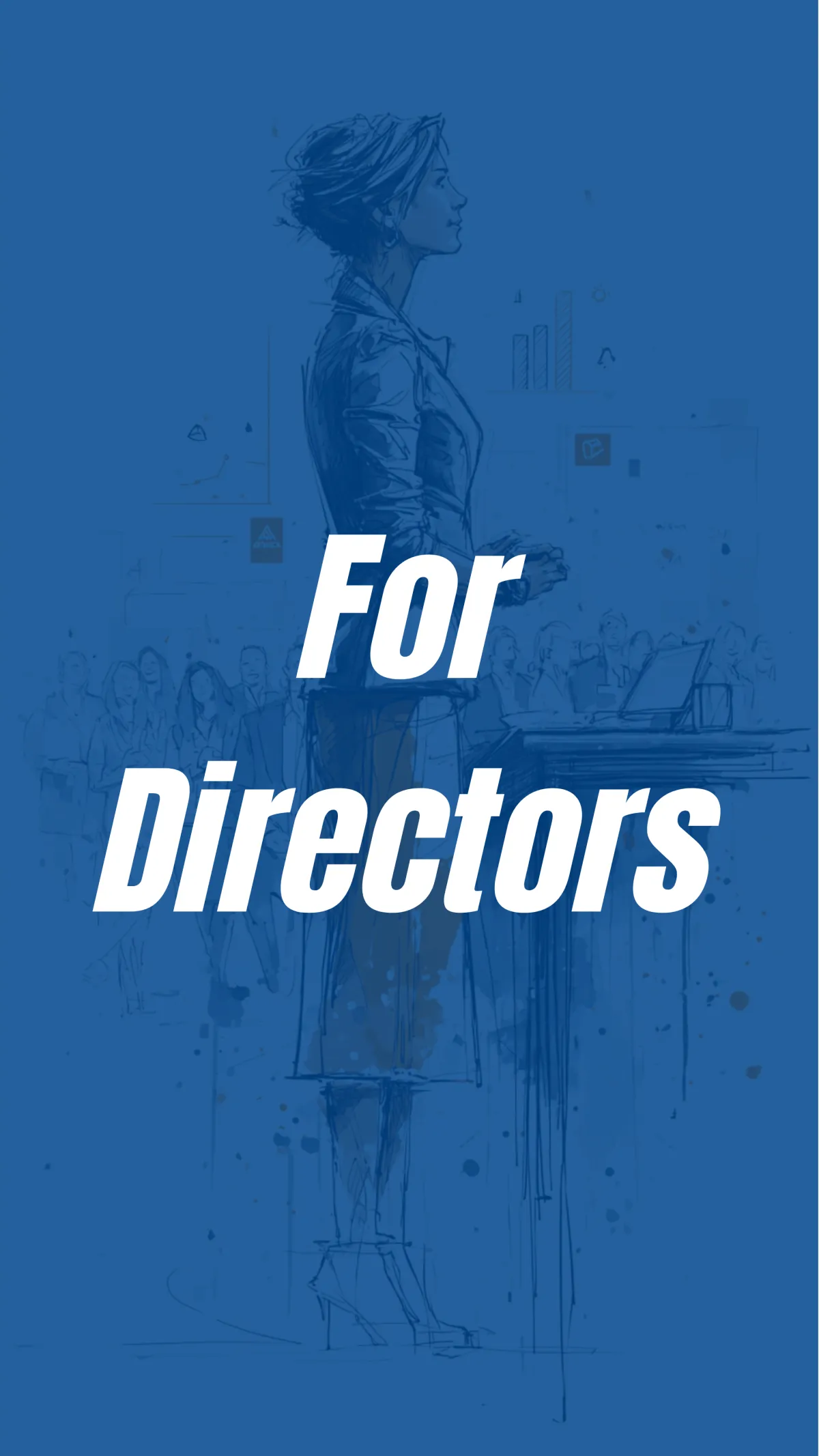
What Typically Ruins Real Estate Events?
You've poured your heart, time, and money into planning a real estate event. You envision a room buzzing with prospects, great connections happening, and new deals forming. But then, the event day comes, and things go sideways. So, what typically ruins real estate events and turns that dream into a frustrating reality for many real estate professionals?
It's a sinking feeling, isn't it? Watching an event you had high hopes for fall flat can be demoralizing, especially in the competitive real estate sector. Understanding what typically ruins real estate events is the first crucial step to making sure yours are a roaring success, not a quiet regret that impacts your standing in the estate industry.
You want your open houses for a residential property, seminars on the housing market, or networking mixers to generate leads and build your brand. The goal is not to become a case study in what not to do when trying to create opportunities real estate focused. Let's explore the common culprits that can affect your event's success, including understanding how current mortgage rates affect attendance.
Ready to turn these insights into real revenue for your real estate business? Stop struggling with marketing that doesn't deliver results. In just 20 minutes, we'll create a customized plan to help you implement these strategies and grow your business. No fluff, no cookie-cutter approaches – just practical solutions tailored to your specific challenges. Book your complimentary discovery call today at https://lesix.agency/discovery and start seeing real results.
The Unseen Saboteurs of Your Real Estate Gathering
Sometimes, the biggest problems start long before the first guest arrives. These are the quiet mistakes that can completely undermine your event's potential for showcasing a potential investment. They often creep in disguised as minor oversights in the initial strategic planning phases.
One of the most common issues is a fuzzy purpose. If you do not know exactly what you want to achieve with your event, how will you know if you have succeeded, or if the perceived risk was worth the investment? It sounds simple, but many events in the real estate market lack clear, measurable goals from the get-go, impacting their ability to attract serious real estate investors.
Is your goal to get 20 new buyer leads, who might be influenced by current market conditions? Or maybe you want to introduce your new brokerage, like Broker Brenda, to the local community and highlight how you differ from other estate investors. Without a specific target, your planning can become unfocused, your efforts diluted, and your message lost amidst fluctuating market trends.
When Your "Why" Gets Lost
Imagine Agent Alice, trying to boost her local presence through community events. She decides to host a "community meet and greet," hoping to stimulate business growth. A lovely idea, but what is the tangible outcome she is looking for, and how does it tie into her long term goals?
Without defining if it is about collecting email addresses for her newsletter, booking five new listing appointments, or simply increasing her brand recognition by a certain metric, the event's structure and promotion become vague. This lack of a sharp focus often leads to a poorly attended event or one where attendees leave without a clear next step or understanding of the opportunities real presented. Understanding relevant demographic trends could help Agent Alice define her "why" more clearly.
A study by Bizzabo highlighted that attendee engagement is a top priority for event marketers, but engagement is hard to foster without a clear purpose driving the event. Your "why" informs every other decision, from content to choice of service providers for catering and AV, and can even influence your editorial policy for event materials.
The Perils of Poor Preparation
Then there is the planning, or sometimes, the lack of it. We have all heard "fail to plan, plan to fail," and this is incredibly true for events across the estate market. Last-minute scrambles almost always lead to something important being missed, which can damage your reputation among estate professionals.
Did you double-check the venue's AV capabilities, especially if you plan to discuss complex topics like how government policies impact real estate loans? Is there enough parking, or is the parking lot too small or distant? What about a contingency plan if your keynote speaker, perhaps an expert on commercial real estate loans, gets sick?
These details might seem small, but they can cause big headaches on event day. Poor organization shows, and it makes you look unprofessional, which is the last thing you want when trying to secure a real estate investment from attendees. Careful selection of all service providers, from caterers to security, is vital.
For instance, forgetting to order enough coffee for a morning seminar on market insights sounds minor. But caffeine-deprived attendees are often not the most receptive audience, especially if they are trying to absorb information about a potential investment. It is these little things that add up to a negative experience, undermining your efforts in the real estate investing sphere.
Effective strategic planning also involves considering factors like potential construction costs if temporary setups or modifications to the venue are needed. A thorough plan considers every angle, minimizing surprises and allowing for a smoother execution, whether you're discussing the latest estate news or a new investment trust.
Ignoring Your Audience: A Direct Path to Event Failure
Who are you trying to reach with your real estate event? If your event does not resonate with your target audience, you are basically talking to an empty room, even if people show up. This is a frequent misstep that can derail events focused on anything from residential property sales to opportunities in commercial real estate.
You need to get inside their heads and understand their concerns, perhaps related to the purchase price of property or fluctuations in the federal reserve bank policies. What are their pain points? What information are they seeking about the evolving market or perhaps specific investment opportunities?
For example, if School Owner Sally is hosting a workshop for new agents, content focused on advanced commercial real estate techniques or the nuances of a real estate investment trust might miss the mark. They are probably more interested in lead generation basics or understanding contracts for their first deals. Providing value relevant to their immediate needs, and making sure buyers understand the information, is critical for engagement.
Content That Misses the Mark

Imagine attending a first-time homebuyer seminar that spends an hour on intricate mortgage-backed securities. Most attendees would be lost, bored, or both, especially if they are worried about current mortgage rates. Their immediate need is to understand the buying process for an investment property, not advanced financial instruments that seem distant from their goal of finding an affordable purchase price.
This disconnect between what you offer and what your audience actually wants is a surefire way to have people mentally check out or physically leave. You have got to match your expertise to their current needs, whether they are seasoned estate investors or new to the real estate sector. Using recent real estate news to inform content can also keep it fresh and relevant.
Think about Agent Alice again, whose main concern is market stability in the local housing market. An event focused on "Thriving in Uncertain Times," addressing economic indicators and their impact on the estate market, would resonate far more than a generic "Why You Should Sell Now" pitch. Research from the National Association of REALTORS® often highlights current consumer concerns that can guide your content, ensuring it provides genuine market insights.
Promotion Problems: If They Don't Know, They Won't Go
You could have the most amazing event planned, packed with information about the latest market trends, but if nobody knows about it, or if the promotion does not compel them to attend, your efforts are wasted. Many events suffer from ineffective promotion, impacting even the best-planned discussions on real estate investment. This is not just about sending out a few emails; it requires a broader strategy.
Are you using the channels where your target audience, perhaps potential real estate investors or individuals interested in a tax credit, spends their time? Is your messaging clear and compelling? Does it highlight the specific benefits of attending your event, such as gaining understanding about how rates affect their decisions?
Starting your promotion too late is another classic blunder. People's calendars fill up quickly, especially for popular community events or industry gatherings. You need to give them enough notice to make plans, which might include arranging childcare or travel. A poorly timed or targeted promotional strategy means low attendance, which directly impacts the event's vibe and ROI, potentially harming your long term business growth.
Leveraging local news outlets can be an effective way to reach a specific geographic audience. Also, make sure your promotional materials clearly state your privacy policy regarding any data collected, which builds trust from the outset. A broad range of promotional activities should be considered for maximum reach.
The Registration Roadblock
Believe it or not, a clunky or confusing registration process can deter potential attendees from your real estate event. If it is too complicated, asks for too much information, or simply does not work well on mobile devices, people will give up. This is where user experience really matters for converting interest into attendance.
Make it easy for them. A simple form, clear instructions, and prompt confirmation emails go a long way toward a positive first impression. Every barrier you remove increases the chances of them completing the registration and actually showing up, whether they are interested in residential property or complex commercial real estate deals.
Lack of reminders is also a problem, especially in a fast-paced real estate industry. People register, sometimes weeks in advance, and then forget amidst their busy schedules. Automated reminders, perhaps with a snippet of exciting estate news related to the event, can significantly boost attendance rates and show professionalism.
What Typically Ruins Real Estate Events? Day-Of Disasters
Even with perfect planning and promotion, the day of the event itself can be where things unravel. This is where the rubber meets the road, and unforeseen issues can create a chaotic experience for everyone involved, tarnishing perceptions of available investment opportunities. Thinking about what typically ruins real estate events often brings these day-of problems to mind first.
One of the most dreaded is technical failure. We rely so much on technology for presentations, sound, and even check-ins, especially when discussing how the federal reserve might impact market conditions. When it fails, it can bring everything to a screeching halt, frustrating both speakers and attendees.
Picture this: your guest speaker is ready, but the microphone keeps cutting out. Or your crucial market update slides, full of valuable market insights, will not display on the screen. These issues are not just embarrassing; they disrupt the flow, diminish the value of your content on topics like property tax, and frustrate attendees trying to learn about estate investing.
Tech Glitches and AV Nightmares
Always test your equipment thoroughly before the event starts. Have backups if possible, particularly for critical components like microphones and projectors. Is the Wi-Fi strong enough to support your needs and those of your attendees, who might want to look up information on a potential investment during breaks?
It is shocking how often events are derailed by a faulty projector bulb or a missing cable. A small investment in a tech check, or even hiring professional service providers for larger events, can save you a world of trouble and protect your reputation in the estate industry. Proper AV can make or break discussions on complex topics like debt service or the benefits of a real estate investment trust.
This is not just about presentations. If you are using an app for event engagement or lead capture, make sure it is working seamlessly for all users. Test, test, and test again to avoid day-of panic and ensure a smooth experience for real estate professionals and their clients.
Speakers Who Don't Connect

The content might be great on paper, detailing excellent investment opportunities or the latest estate news, but if the delivery is dull, it will not land. An unengaging speaker can turn an exciting topic, like the future of the housing market, into a snooze-fest. This is a huge factor in event satisfaction and can significantly impact whether attendees feel the event was worthwhile.
Are your speakers passionate and knowledgeable? Can they connect with the audience on a human level, explaining how market conditions or decisions by the reserve bank could affect them personally? "Death by PowerPoint," where a speaker reads endless slides verbatim, is a common complaint among attendees at real estate industry events.
Encourage interaction. Q&A sessions, polls, or small group discussions can make a big difference. Remember Association Andie, who values innovation? She would appreciate a dynamic, forward-thinking presentation style that goes beyond static slides, especially if discussing the evolving market and its opportunities real estate focused.
Logistical Jams and Bottlenecks
Smooth logistics are invisible when done well but glaringly obvious when they go wrong. Long lines for registration or food can start the event off on a sour note, impacting perceptions of even the best commercial property showcase. Poor venue layout, including an inadequate parking lot, can make it hard for people to move around or network effectively.
Think about the flow of your event. Where will people congregate? Is there enough space, especially if discussing sensitive topics like real estate loans? Are refreshments easily accessible, or are they creating a bottleneck near important displays of investment property information?
Understaffing can also lead to logistical chaos. Make sure you have enough people to manage check-in, direct attendees to different sessions or amenities, and handle any issues that arise. A well-oiled machine creates a positive, stress-free experience for your guests, allowing them to focus on the valuable content related to real estate investing.
Consider an event planner for larger events; statistics show a high percentage are women, who often excel at managing these multi-faceted details. Proper logistics are crucial whether it's a local community event or a large conference for estate investors from across the nation. Do not forget details like clear signage and accessibility for all attendees.
The Hangover: When Post-Event Actions Are Missing
The event is not truly over when the last guest leaves. What happens next is just as important, if not more so, for achieving your goals in the real estate sector. Yet, this is where many real estate professionals drop the ball, missing out on converting interest into tangible business growth.
You have made connections, people have shown interest, perhaps in a specific commercial real estate opportunity or a new residential property listing. But without a solid follow-up plan, those potential leads can go cold very quickly. This is a missed opportunity that can negate all your hard work and event expenditure.
Did you have an efficient way to capture contact information beyond just collecting business cards? And what is your plan to use it to nurture these potential clients or partners? The quality of your follow-up reflects on your professionalism as an estate professional.
Losing Leads: The Capture Conundrum
Relying on a stack of business cards that you might misplace or forget to input is risky in today's fast-moving estate market. Modern events often use apps or simple digital forms for lead capture. The easier it is to get information accurately, the more likely you are to succeed in converting those leads, especially if they are interested in time-sensitive investment opportunities.
But capturing is not enough. You need a system to organize these leads, perhaps by their interest in the real estate market in general, or a specific type of estate investment. Tag them based on their interest level or the specific conversation you had. This allows for more personalized and effective follow-up.
For Broker Brenda, looking to recruit talent for her growing firm, remembering key details about potential hires she met at an industry event discussing the evolving market is vital. A good capture system helps with this, ensuring no promising candidate is overlooked. Efficient lead capture is essential for any business looking for sustainable growth.
The Follow-Up Fail
Sending a generic "thanks for coming" email is better than nothing, but it is not very effective in nurturing leads interested in, for example, commercial property. Your follow-up should be timely, personal, and provide additional value. Did you promise to send someone a resource about a new tax credit or details about how property tax works in a certain area? Make sure you do it promptly.
Reference something specific from your conversation if you can. This shows you were listening and makes the connection stronger, especially if you discussed complex topics like real estate loans or specific investment trust structures. The goal is to continue the conversation, not just close a loop, fostering long term relationships.
Many sales are lost simply due to lack of follow-up. Do not let your event leads, whether they are potential buyers, sellers, or future real estate investors, wither on the vine because you got too busy or did not have a plan. HubSpot research often points to the importance of timely follow-up in converting leads into actual business, which is a core component of effective real estate investing strategies.
Ignoring the Gift of Feedback
How will you know what worked and what did not if you do not ask? Soliciting feedback is essential for improving future events and understanding attendee perception of your brand and offerings in the real estate industry. Many hosts skip this step, fearing negative comments, but it is invaluable for future strategic planning.
Send out a short survey while the event is still fresh in attendees' minds. Ask specific questions about the content, speakers, venue, and overall experience. What did they like best? What could be improved for future community events or professional seminars?
This information is gold. For School Owner Sally, attendee feedback can directly shape her curriculum and teaching methods for courses on the housing market or commercial real estate loans, making her educational offerings more relevant and effective. This feedback loop supports continuous improvement and business growth for all real estate professionals.
Walking the Tightrope: Event Budget Blunders
Money matters significantly in event planning. How you manage your event budget can make or break its success, and also your sanity, especially when economic indicators are volatile. Both overspending and underspending can cause significant problems for your real estate event.
It is easy for costs to spiral out of control if you are not careful. Hidden fees, last-minute additions, or simply underestimating expenses related to service providers or even unexpected construction costs for setups can lead to a budget blowout. This puts a strain on your resources and can impact the event's profitability or your overall marketing budget for the real estate sector.
On the other hand, skimping too much on critical elements can damage the attendee experience. A cheap venue, poor-quality catering, or unreliable technology can leave a lasting negative impression, regardless of how good your content on market trends or investment opportunities is. Balancing cost with quality is key to managing perceived risk.
When the Budget Bursts
Start with a detailed budget. List every potential expense, from venue rental and catering to marketing materials and speaker fees. Get multiple quotes for big-ticket items and factor in potential changes in purchase price for supplies.
Track your spending carefully as you go, using tools or spreadsheets. It is also wise to have a contingency fund, typically 10-15% of the total budget, for unexpected costs because surprises always happen, like a sudden need for a better sound system or more materials. This proactive financial management is crucial, especially if there's debt service involved in financing larger events.
Overspending often happens with those "nice-to-have" extras that were not in the original plan. Ask yourself: will this truly improve the attendee experience and help me achieve my goals for this real estate investment event, or is it just a frill? That question alone can save you money and keep your focus on core objectives like presenting opportunities real estate related.
The True Cost of Cutting Corners
Trying to do an event on a shoestring budget can be just as damaging as overspending. If the coffee is terrible, the room is uncomfortable, or the sound system makes speakers discussing mortgage rates inaudible, people will remember that. They will not remember how much money you saved; they'll remember the poor experience with your brand.
Prioritize spending on items that directly impact the attendee experience and your event goals. Good food and drinks, a comfortable and accessible venue with an adequate parking lot, and clear audio-visuals are usually worth the investment. These elements contribute to how attendees perceive the value of the information presented, whether it's about commercial property or residential property tax.
You want your event to reflect the quality of your brand and the potential investment opportunities you represent. Cutting corners in the wrong places can send the wrong message about your professionalism and attention to detail, harming your reputation within the estate industry. Quality matters, especially when real estate investors are evaluating you and your offerings.
To help visualize budget considerations, here's a look at common areas and their potential pitfalls:

Managing your budget effectively is a cornerstone of successful event planning. This includes anticipating how factors like government policies or economic indicators might influence costs for service providers or materials over the long term.
The Elusive ROI
Ultimately, your real estate event needs to deliver a return on investment (ROI). This is not always just about direct sales made at the event. ROI can also include new leads for your real estate business, enhanced brand awareness within the estate sector, or strengthened client relationships that lead to future business.
Define your key performance indicators (KPIs) before the event. How will you measure success against the costs incurred, including any debt service if applicable? If you cannot demonstrate a positive ROI, it becomes hard to justify future events, especially to stakeholders or, if you are Agent Alice, to yourself when managing your marketing budget for the evolving market.
Understanding your costs versus the tangible and intangible benefits is crucial for assessing the event's contribution to your business growth. A clear view of ROI helps refine your event strategy over time, ensuring each gathering effectively supports your objectives in the competitive real estate industry, whether you're showcasing a broad range of investment property or focusing on a niche market segment. Analyzing the impact on your standing with the local national association chapter can also be an intangible benefit.
Conclusion
Hosting successful real estate events takes careful thought and execution across the entire real estate industry. So many elements, from initial concept and understanding current market trends to post-event follow-up and analyzing market insights, play a part. Knowing what typically ruins real estate events allows you to proactively address these common pitfalls and make informed decisions about your strategic planning.
You do not want technical glitches, poor content irrelevant to the housing market, or a forgotten follow-up to undermine your hard work and the potential to connect with valuable real estate investors. By recognizing what typically ruins real estate events—things like unclear goals, ignoring attendee needs or how rates affect their decisions, logistical nightmares around aspects like the parking lot, and budget miscalculations—you are already halfway to avoiding them. This awareness helps buyers understand your professionalism and the value you offer.
You can create gatherings that not only run smoothly but also genuinely help you build relationships, showcase opportunities real estate focused, and grow your real estate business. Success means avoiding these costly mistakes and instead, focusing on delivering value and making meaningful connections within the dynamic real estate market. This approach benefits not only your business growth but also strengthens the entire estate sector by promoting better practices.
Don't let another day pass without a clear marketing strategy that actually works. In just 20 minutes, we can develop a customized plan to help you implement these ideas and start generating real revenue. Our discovery calls have helped hundreds of real estate professionals just like you transform their marketing from a source of stress to a growth engine. Take the next step now – visit https://lesix.agency/discovery to book your complimentary session and start building the business you deserve.










